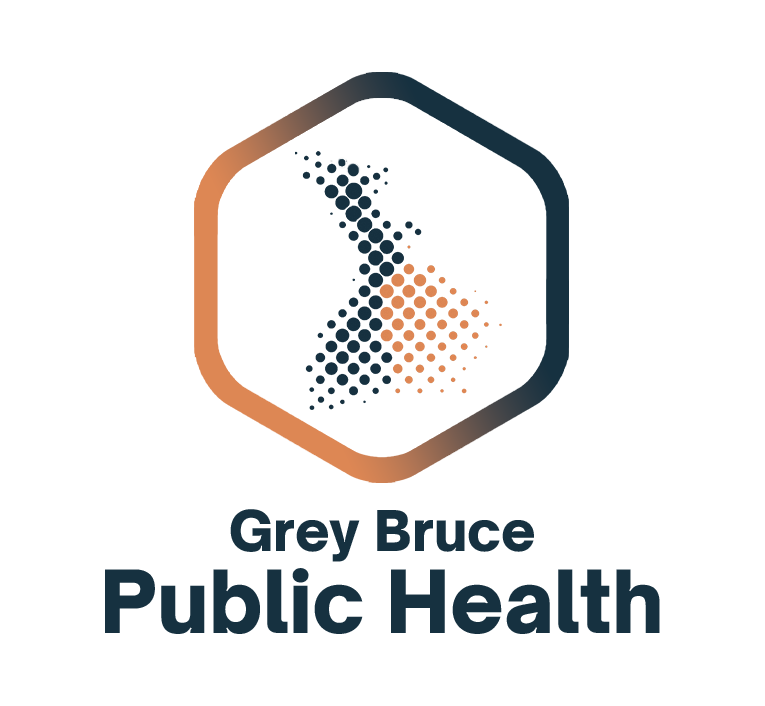GREY-BRUCE – Grey Bruce Public Health (GBPH) has led a Locally Driven Collaborative Project (LDCP), aimed at identifying and enhancing evidence-based strategies for preventing substance use and related harms among Ontario youth.
GBPH Physician Consultant Dr. Rim Zayed, the project’s lead investigator, along with GBPH Program Manager Lami Sadare and Unity Health Toronto staff presented the applied research and evaluation project during a Public Health Ontario (PHO) Rounds event, entitled “Youth Risk, Protective Factors, and Prevention Against Opioid and Drug Use,” on Sept. 25.
“This LDCP project comes as data shows opioid-related deaths have skyrocketed in recent years among Ontario youth and substance-related harms among youth are also on the rise. The COVID-19 pandemic further exacerbated the issue and impacted Ontario youth particularly hard, with national surveys indicating young people were more likely to report mental health and substance use concerns compared to the general population,” said Zayed. “It was with this backdrop that the project team set out to identify and understand the strategies currently being used by health units and other stakeholders in Ontario to prevent youth aged 15 to 24 from using substances and experiencing substance-related harms. The project team then used this information to identify ways to improve the overall effectiveness of substance use prevention efforts and address existing gaps.”
The goal, Zayed said, is for the LDCP’s findings to help in developing and refining preventive interventions, enable better monitoring/evaluation of prevention strategies, and provide public health units and key stakeholders with the information needed to strengthen their practices and optimize outcomes in substance-use prevention.
GBPH and the project team received approval and funding from PHO in 2022 to undertake the LDCP.
GBPH served as the lead public health unit for the project, entitled “Implementing an evidence-informed public health approach to health promotion around substance use and preventing substance-related harms among youth aged 15-24 in Ontario.”
The core project team included staff from GBPH, along with the Simcoe Muskoka District Health Unit and Kingston Frontenac Lennox & Addington Public Health, which were public health units co-applicants.
Staff from Unity Health Toronto, the University of Toronto’s Dalla Lana School of Public Health, the Northern Ontario School of Medicine (NOSM) and the Ontario Drug Policy Research Network (ODPRN) were also on the core project team.
The Council of Ontario Medical Officers of Health Drug/Opioid Toxicity Crisis Working Group, York Region Health Unit, Porcupine Health Unit, Public Health Ontario, and the Office of Ontario’s Chief Medical Officer of Health were advisors and supporters to the project.
For the LDCP, the project team documented evidence-based strategies aimed at preventing substance use and related harms among youth aged 15 to 24, created a taxonomy on strategies that address drug use at primordial and primary levels, developed an inventory of evidence-based strategies currently implemented in Ontario’s public health units, and identified indicators for monitoring and evaluating the effectiveness of identified evidence-based strategies.
The final LDCP report presents recommendations for improving efforts to prevent and delay substance use amongst youth.
They include implementing upstream interventions – initiated early in a person’s life – to address risk factors, such as adverse childhood experiences/trauma, the social determinants of health, low self-esteem, peer pressure, and lack of a positive school environment, as well as protective factors, such as cultural identity, positive peer influence, and strong social supports, to increase resilience and create supportive communities for youth.
Other recommendations include increasing youth engagement while designing and implementing prevention strategies, exploring opportunities for intersectoral collaboration, and leveraging further opportunities to align public health efforts with existing community-based initiatives.



